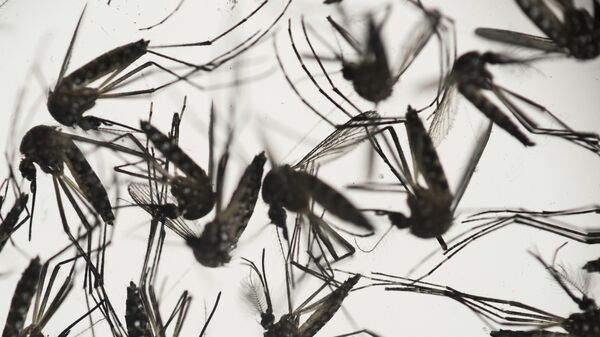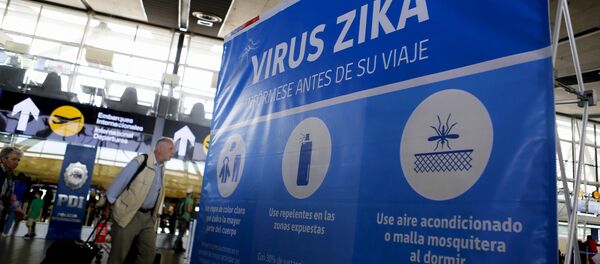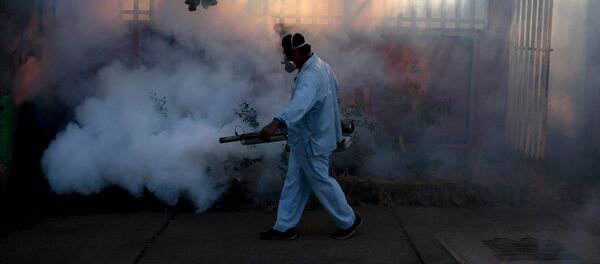The vaccine, Dengvaxia, has already been given to more than 730,000 public school children age nine or older in three regions of the Philippines in an effort to prevent the potentially deadly mosquito-borne virus.
Dengue can cause severe flu-like symptoms and can in some cases progress to cause breathing issues, hemorrhaging and organ failure.
The manufacturer of the vaccine, France-based Sanofi Pasteur, recently revealed that six years of clinical data show that the vaccine could worsen the disease in people who were not previously infected with the virus.
A Philippine NGO recently claimed that they received information that three children vaccinated with Dengvaxia in the Philippines had died, although Department of Health Undersecretary Gerardo Bayugo told Reuters that the three children died due to causes unrelated to the vaccine and that no deaths caused by the vaccine have been reported so far.
"As far as we know, as far as we are made aware, there are no reported deaths that are related to the dengue vaccination," Ruby Dizon, the medical director at Sanofi Pasteur in the Philippines, told Reuters recently.
Last week, the Philippines Department of Health prohibited the use of Dengvaxia. On Monday, the Department of Justice ordered the National Bureau of Investigation to investigate "the alleged danger to public health… and if evidence so warrants, to file appropriate charges thereon."
It is unclear why Philippine health officials were unaware of risks associated with the vaccine.The World Health Organization (WHO) said in a July 2016 research paper that the "vaccination may be ineffective or may theoretically even increase future risk of hospitalized or severe dengue illness in those who are seronegative at the time of first vaccination regardless of age."
Last week, Singapore's Health Sciences Authority announced that it was aware of Dengvaxia's risks when it was approved in the country in October 2016, and has been working with the manufacturer to improve risk warnings on the drug's packaging.
In a statement last week, Brazil's healthcare regulator, Anvisa, said that it recommends people in Brazil, where the disease is widespread, not to take the vaccine if they have not already suffered a bout of dengue.
On Sunday, Philippine President Rodrigo Duterte said the country's government would make sure those who implemented the program are held accountable. However, presidential spokesman Harry Roque also emphasized that there have been no reported cases of the infection since use of the vaccine became prevalent and urged the public "not to spread information that may cause undue alarm."
Former Health Secretary Janette Garin, who established the program under former-president Benigno Aquino, recently said on ANC TV that she is ready to face any consequences, emphasizing that the vaccination program had been implemented in accordance with WHO guidelines and recommendations.



